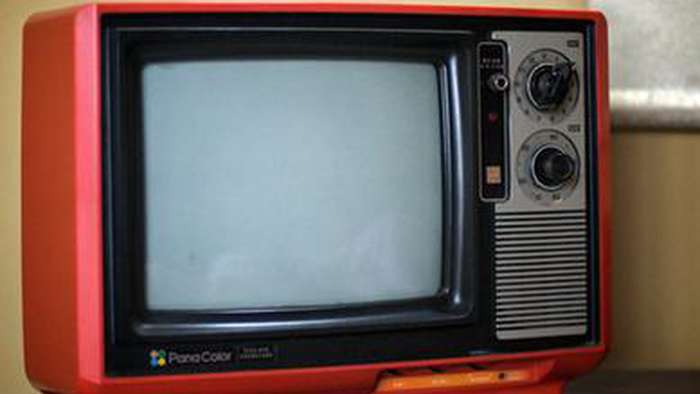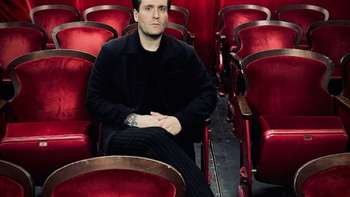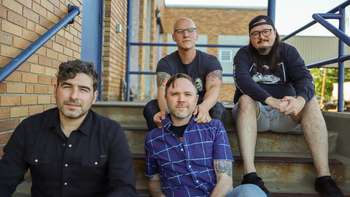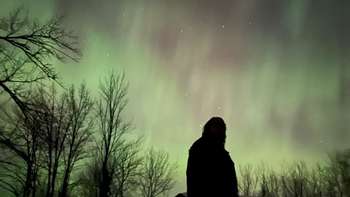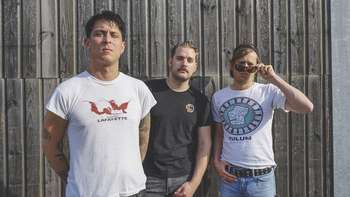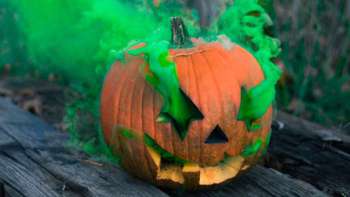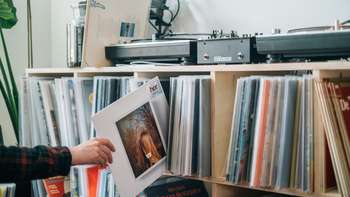TV theme songs are their own art form: they aren’t singles and they aren’t cinematic scores. Instead, they have to be memorable while predominantly setting the tone for the upcoming program. There’s a reason few pop songs are successfully regurgitated into the form and there’s another reason why, thirty years later, people can still sing you their favorites. And it’s not just repetition. The SPB staff took some time to consider our favorites from the medium. What did we overlook?
1
The Kids In the Hall (1988-1995)
How do you capture the tone of a sketch show with a mix of genuine oddities and absurdity, catch phrases, and a philosophical touch? Well, it all starts with the theme song: “Having an Average Weekend” by instrumental band Shadowy Men on a Shadowy Planet, a bass-heavy instrumental with a surf guitar line. It’s memorable without forcing itself into your head, and it fits the upbeat personality of the show. More importantly: it sounds dated, but not in a bad way. The recording tone matches the quirkiness of the late 80s-early 90s and it gives a taste of what it was like to be different in the era of hairspray, sports cars, and showy guitar solos. The laidback everyday-ness of the song harkens how it felt to be goofy, to have short hair and to wear flannel shirts and, hey—if it’s your thing—maybe even put on a wig and blouse for a few minutes.
-Loren
2
Laverne & Shirley (1976 - 1983)
Ok, so there was only space for one more. It was between Laverne & Shirley and Happy Days. Both are incredibly catchy songs written and lyricized by Charles Fox and Norman Gimbel. However, Laverne & Shirley's theme, "Making Our Dreams Come True," wins it over. Happy Days' theme feels trapped in the era it's meant to embody while Laverne & Shirley's theme transcends time. You hear it now and it sounds like a song that could easily transpose into a modern-day pop song. The track's harmonies hook and reel you into its "carpe diem" theme that inspires while also representing the characters, which in turn makes for a better show because it becomes more relatable. "Making Our Dreams Come True" is not just a great theme, it's a great song. Plain and simple.
-Aaron
3
Neon Genesis Evangelion (1996-1997)
We can't totally ignore anime. There's a lot of it out there, but very few have theme songs that stick out to me. The most memorable for me are the mid-90s where it seemed like the themes were a lot less edgy (of course it depends on the anime) and focused more on catchy pop melodies. "Cruel Angel Thesis," from Neon Genesis Evangelion is not only a great anime theme song, it's a great song period. Everything about the track is perfect. It takes you on a ride starting with an operatic choir all the way to a chorus full of pop melodies hinging on a disco influence. Not to mention, the production on the single track is outstanding. From the subtle bongo beats in the verse to the heavenly keyboard progression in the pre-chorus. Nothing gets lost in the flood of instruments that make up the composition. You don't even need to speak the language to appreciate the vocal performance. Although, after all these years, I can only sing about 70% of it.
-Aaron
4
Doctor Who (1963-present)
Written by Australian composer Ron Grainger but first realized by experimental musician Delia Derbyshire at the legendary BBC Radiophonic Workshop, the instrumental title theme for the long-running British science fiction program Dr. Who stands as one of television's most instantly recognizable pieces of music - and one that undoubtedly influenced scores of future musicians. Produced years ahead of commercially available synthesizers, this composition (essentially, a musique concrète work which stands as one of the first pieces of electronic music much of the viewing public would have heard) was assembled piece by piece through the editing and manipulation of analogue tape - the signature throbbing bassline, for instance, was produced by splicing copies of a single note one after another. Over the years, the piece has been "souped up" from this original, almost sterile-sounding version: Peter Howell's adaptation of the piece from the early '80s had a more grumbling sound to it, with an especially piercing high-pitched melody, while the more obviously synthesizer-driven Dominic Glynn version, which played only during the 1986 season, re-emphasized a sense of mystery, with bubbling and gurgling sound effects added throughout the mix. A grandiose orchestral version of the tune (arranged by Murray Gold) even popped up in the mid 2000s, but through all the changes, the piece has remained ominous and almost frightening, perfectly capturing a sense of the unknown.
-Andy
5
The Boondocks (2005-present)
I’ll admit I never really read this comic strip until Adult Swim got in on the game and it went anime. When those first hard-hitting words introduce, though—Asheru’s “I am the stone that the builder refused” cuts through the airwaves, it’s immediate, blunt, and with heavy impact—it’s time to pay attention. The theme is heavy, direct, and contemporary—unlike what one thinks of while browsing the funny pages. As it continues through the 30 second clip, it further hits all the elements of the show: the anime violence, the politics, the heart, and the humor, balancing steady rhythm with blunt lyricism to showcase the delicate balance, the social battles exhibited in the cartoon itself via Huey and Riley Freeman.
-Loren
